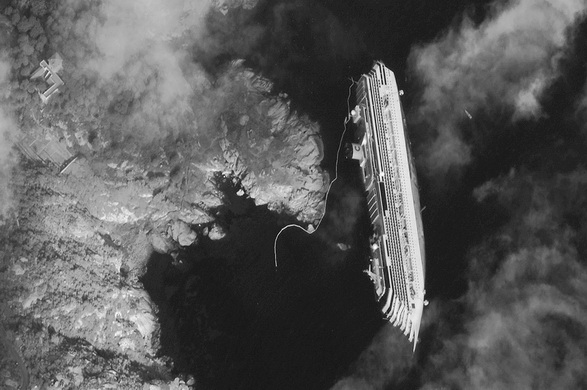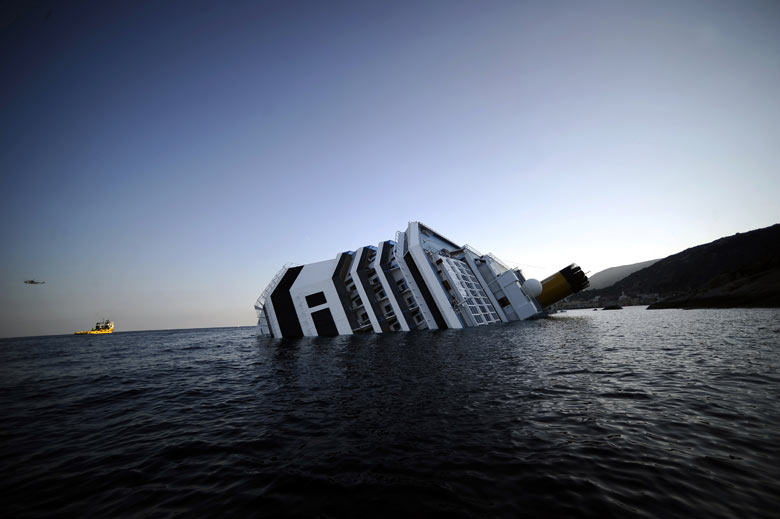A newly released audio exchange between Port Authority and Costa Concordia Captain Fransesco Schettino was released today. Below is the transcript of the exchange:
Captain Schettino: It’s Capt. Schettino.
Port Authority: Schettino, listen to me, there are people trapped onboard, now you go back, you will go with your rescue boat under the stern of the ship, there are some steps, you climb those steps and you get onboard and you get back to me letting me know how many people are on board. Is that clear to you? I am actually recording this conversation captain.
 Port Authority: Speak in a loud voice.
Port Authority: Speak in a loud voice.
Captain: So, the ship right now …
Port Authority: Speak in a loud voice! Put your hand by the microphone to cover it and speak up! Is that clear?
Captain: So, right now the ship is tilted…
Port Authority: I understand that. Listen to me, there are people that are getting off using the rope ladder on the stern side, you go back there and you go up that ladder the opposite way, you go onboard the ship and you tell me how many people [are there.] And what they need. You tell me if there are children, women or people that need assistance and you give me a number for each one of these categories is that clear?
Captain: Officer, please.
Port Authority: There are no “pleases!” Get back on board! Please assure me that you are going back on board.
Captain: I am here on the rescue boat. I’m right here, I didn’t go anywhere else, I’m here.
Port Authority: What are you doing captain?
Captain: I’m here to coordinate rescue operations.
Port Authority: Do you refuse to do that?
Captain: No, I’m not refusing to do that.
Port Authority: Are you refusing to back on board?
Captain: No, I am not refusing to go back. I am not going because the other rescue boat stopped.
Port Authority: Get back on board! This is an order! You don’t need to make any other assessment. You have declared that you have abandoned ship, therefore I’m in command. Get back on board right now is that clear?
Captain: Officer…
Port Authority: Can you not hear me?
Captain: I’m getting back on board.
Port Authority: Then go! And call me right away when you are on board. There’s my rescuer there.
Captain: Where is your rescuer?
Port Authority: My rescuer is on the stern side, go! There are already bodies, Schettino! Go!
Captain: Officer how many bodies are there?
Continue reading
 Cruise Ship Lawyers Blog
Cruise Ship Lawyers Blog


 The latest information coming out of the office of Italian prosecutor Francesco Verusio is the most damning evidence of recklessness yet on the part of Captain Schettino.
The latest information coming out of the office of Italian prosecutor Francesco Verusio is the most damning evidence of recklessness yet on the part of Captain Schettino.

 Port Authority: Speak in a loud voice.
Port Authority: Speak in a loud voice.